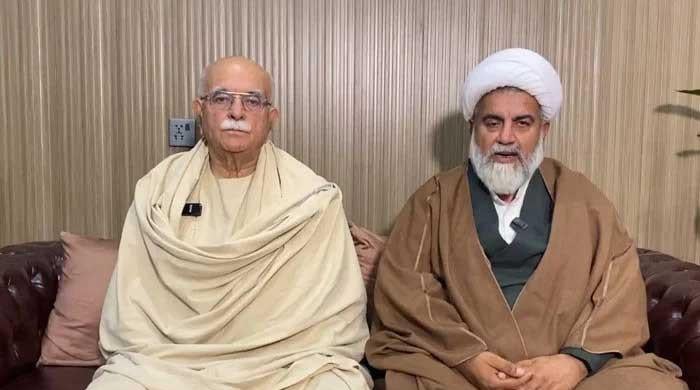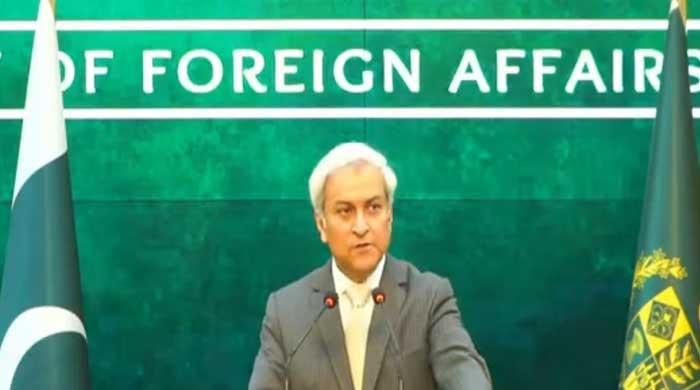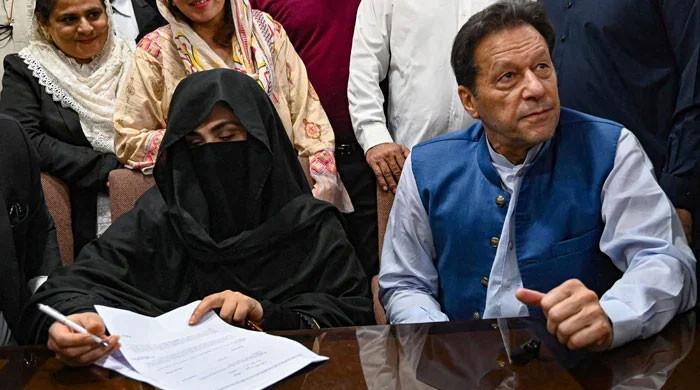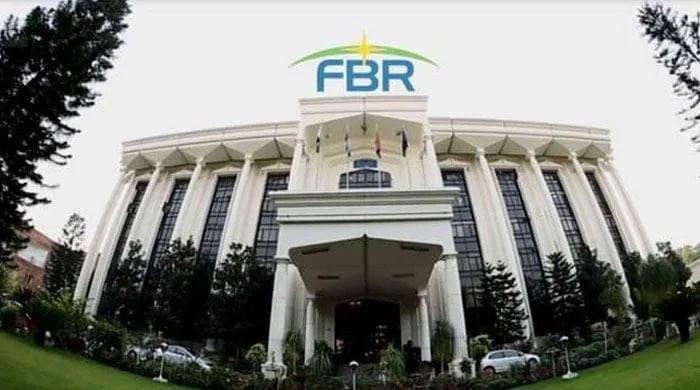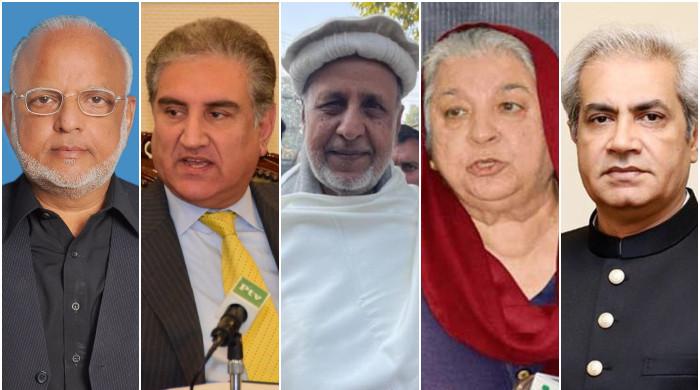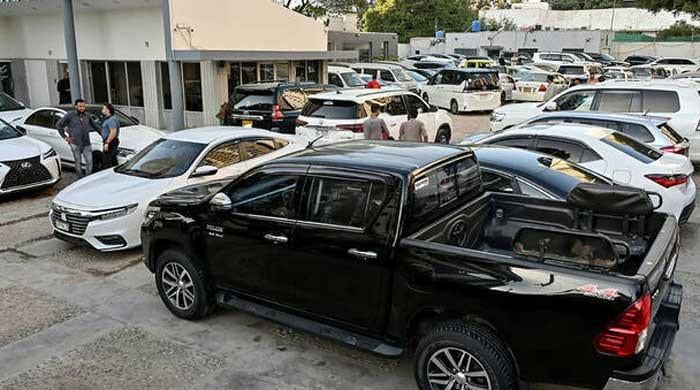‘Extremely unfair’ to blame Pakistan for Afghanistan situation, PM Imran Khan tells Ashraf Ghani
Afghanistan unrest "outcome of using a military solution by the US, instead of a political one": PM Imran Khan tells Ashraf Ghani
July 16, 2021
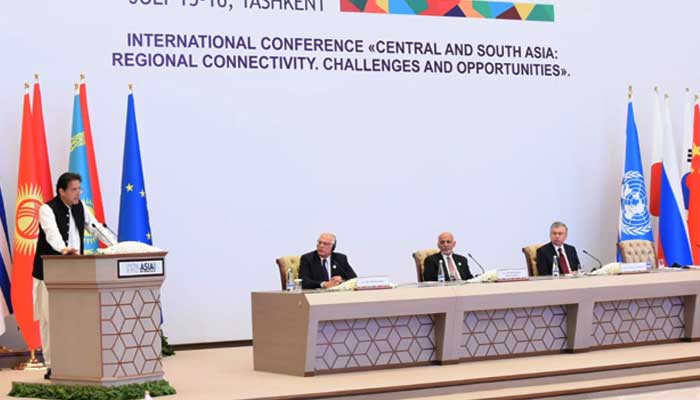
TASHKENT: Prime Minister Imran Khan on Friday asked Afghanistan to consider Pakistan a "partner of peace" rather than blaming it for the ongoing unrest, which he said was the "outcome of using a military solution by the United States instead of a political one".
“Blaming Pakistan for what is going on in Afghanistan is extremely unfair…peace in Afghanistan is our foremost priority,” the prime minister said, in response to the speech of Afghan President Ashraf Ghani at the conference on "Central and South Asia Regional Connectivity, challenges and opportunities’ held at Congress Centre".
During his address, the Afghan president had levelled unfounded allegations against Pakistan, saying that 10,000 fighters had crossed over into Afghanistan from the country.
"If talks fail, we will fight the Taliban," said Ghani. "This is the last chance for peace."
Rejecting the assertions of President Ghani made against Pakistan for “not supporting peace”, the prime minister categorically stated that Pakistan did not want turmoil in its neighbourhood because peace was in its own interest.
“Mr Ghani, I want to make it clear to you that Pakistan will be the last country to think about supporting turmoil and unrest in Afghanistan,” he said.
'Why would the Taliban listen to Pakistan?'
The prime minister said Pakistan would continue to support reconciliation in Afghanistan and urged the Afghan stakeholders and the international community to gear up efforts for a “politically negotiated settlement”.
He mentioned that due to the decades-long conflict in Afghanistan, Pakistan suffered heavily in terms of its 70,000 casualties besides facing huge economic instability.
As Pakistan’s economy was recovering following a difficult phase, he said the country wanted peace in its neighbourhood to ensure completion of development projects for the betterment of the entire region.
Pakistan's prime minister said Pakistan had made every effort for peace in Afghanistan, including bringing the Taliban to the dialogue table. However, he said the right time to engage the Taliban in negotiations was way before the pullout of US troops from Afghanistan.
“Why would the Taliban listen to Pakistan at a time when they are gaining victory after the withdrawal of troops,” he pointed out, adding that the US always insisted on a military solution to the Afghan conflict.
He said Pakistan was already hosting over three million Afghan refugees and did not have the capacity to bear another influx of refugees in the wake of further turmoil.
Read more: Taliban put three-month ceasefire on the table in exchange for release of prisoners
The prime minister said, in his yesterday’s meeting with President of Uzbekistan Shavkat Mirziyoyev, that he discussed the ways how the neighbouring countries of Central Asia could support peace and stability in Afghanistan for the region’s prosperity.
PM Khan said another challenge to regional development was the “unsettled disputes” in South Asia, including the core issue of Jammu and Kashmir.
“The unsettled disputes between Pakistan and India remain a challenge with Kashmir as the main issue,” he said, adding that unfortunately because of such a situation, the huge potential of regional development remained untapped.
The prime minister said Pakistan believed in regional connectivity by promoting land and sea linkages among the countries to boost economic activity.
He said Pakistan’s Gwadar seaport had the potential to cater to the needs of Central Asia and South Asia as a regional transportation hub.
The China Pakistan Economic Corridor (CPEC), he said, would prove a harbinger of development and prosperity for the region, benefitting the two regions.
The conference gathered the President of Uzbekistan Shavkat Mirziyoyev, President of Afghanistan Ashraf Ghani, the foreign ministers and high representatives of the countries of Central and South Asia, and the heads of international and regional organizations and global financial institutions.
The main objective of the forum is to strengthen historically close and friendly ties, trust and good-neighborliness between the states of Central and South Asia in the interests of all peoples and countries of both regions.
During the plenary and the breakout sessions, the forum participants discussed the possibilities of promoting initiatives aimed at developing trade, economic, transport, communication and cultural and humanitarian cooperation in the context of further deepening regional connectivity.
-With additional input from Associated Press of Pakistan (APP)





